Moral character is assessed not by what a man knows but by what he does. - St. Augustine
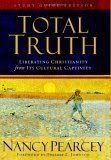 I just finished reading Total Truth by Nancy Pearcey, and really enjoyed it. Some of the main points about worldview and the need for a re-unification of the 'upper' (values, religion, personal experience - the private sphere) and 'lower' (facts, reason - the public sphere) stories of thinking seemed obvious to me, but then I remembered that I have been privileged to spend the last few years at l'abri (a place she was heavily influenced by) and this kind of thinking was revolutionary to me just a short while ago. I really appreciated the way she clearly laid out complex ideas, particularly as she discussed naturalism and the way that Darwinism has evolved into a meta-narrative that is a competing worldview to Christianity, not just a scientific theory. I don't have much of a scientific background, and her explanations were very helpful, and her brief discussion of intelligent design was a good overview.
I just finished reading Total Truth by Nancy Pearcey, and really enjoyed it. Some of the main points about worldview and the need for a re-unification of the 'upper' (values, religion, personal experience - the private sphere) and 'lower' (facts, reason - the public sphere) stories of thinking seemed obvious to me, but then I remembered that I have been privileged to spend the last few years at l'abri (a place she was heavily influenced by) and this kind of thinking was revolutionary to me just a short while ago. I really appreciated the way she clearly laid out complex ideas, particularly as she discussed naturalism and the way that Darwinism has evolved into a meta-narrative that is a competing worldview to Christianity, not just a scientific theory. I don't have much of a scientific background, and her explanations were very helpful, and her brief discussion of intelligent design was a good overview.
There is a section that traces the historical and philosophical factors in the decline of evangelical involvement in intellectual endeavors (a topic explored more fully in Mark Noll's excellent book The Scandal of the Evangelical Mind) that was both illuminating and distressing. While emphasizing the overall positive impact of evangelicalism in America, she doesn't falter in her critique, showing how, particularly during the great awakenings, there was not only a concession to, but an intensification of the split between public and private knowledge. Religion was firmly relegated to the 'upper story' of private experience, and it became accepted by Christians as well as everyone else that the 'lower stories' belonged to science, academia, politics etc, and must be dealt with 'objectively', with religion having no place at the table. We've been surrounded by this dichotomy virtually since birth, so it is somewhat shocking to see that historically this is a new phenomenon - prior to the enlightenment God and faith were much more integral to all endeavors, especially scientific!
In a final chapter, she draws out the ramifications of all this onto gender relations, showing how the industrial revolution - and its irrevocable alteration of both work and home life - impoverished both men and women as they succumbed to the split thinking of the age; men commanding the competitive work world and the public arena, and women left to lead in the private arena of home and religion. I really liked her treatment of such a difficult topic, as she didn't lay out the situation in terms of victim/victimizer, but instead showed how the changes were a natural outworking of the culture of the time. Women lost out as their role shifted from being producers to consumers, and experienced a new economic dependence as they stayed home to raise their families. Men lost out as the workplace moved further from the home and their roles as educators and spiritual heads of the family were handed over almost solely to their wives. The new dynamic wasn't good for anyone.
She closes the book with an all important chapter exhorting that these truths - this Total Truth of Christianity - is not simply to be known, but to be lived. Christianity is as much about orthopraxy as orthodoxy.
Currently Listening To: Ben Harper and the Blind Boys of Alabama


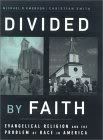
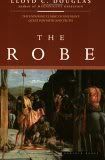

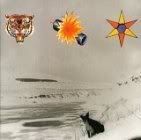
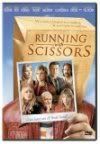



2 comments:
Thanks for this review of Total Truth. You've done a fine job and your post will be a catalyst for people to take and read this important book. I liked especially the way you ended with orthodoxy and orthopraxy.
Jasie,
I agree with Greg. This post well describes Total Truth, which I actually had the whole time I was at L'Abri the first time and didn't actually read until traveling after the term!
I found her book very engaging, and I'm glad you found it to be so also. It was a good way to cap off my first period of time at L'Abri, and I think the topics she so eloquently explains in this book would be very helpful for many today.
Post a Comment